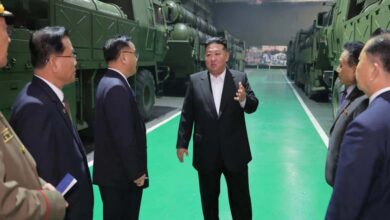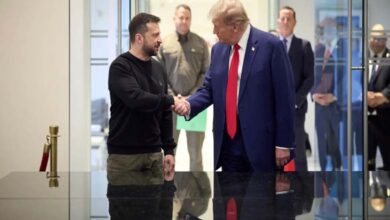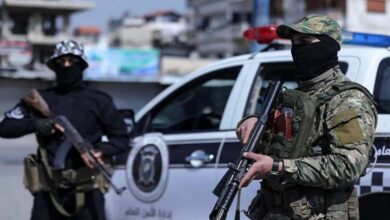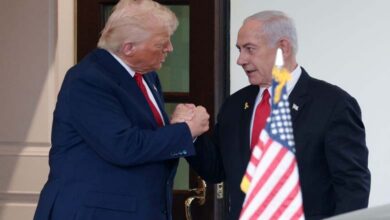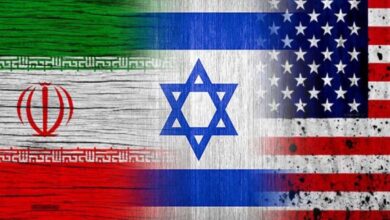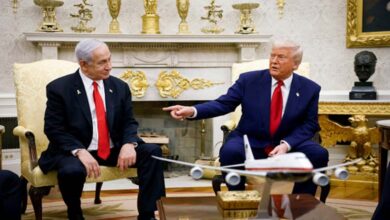Gaza Negotiations and Hostage Families: Mounting Pressure Awaiting the ‘Last Chance’
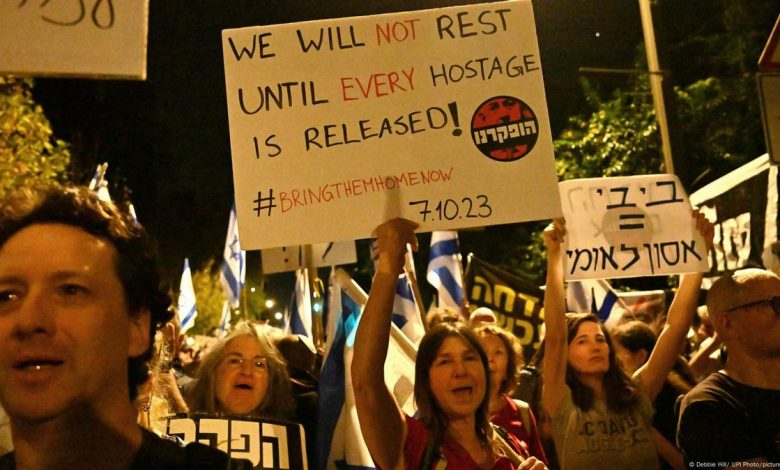
For over 10 months, angry voices have continued to rise in Israel, demanding a deal to bring the hostages back to their families after more than 300 days of captivity in Gaza.
-
Agreement between Hamas and Fatah to form a temporary national reconciliation government
-
Hamas Suspends Truce Negotiations After Assassination Attempt on Deif
In Gaza, there is no more room for pain in their hearts, as they have exhausted their reserve of suffering to the point that tears have frozen in the face of tragedies, and cries have remained trapped in their hearts.
They no longer ask for more than a ceasefire, to rid themselves of the drone of bombings ingrained in their memory, which has become like a bell deafening their ears.
With the resumption of ceasefire negotiations in Gaza yesterday, Thursday, in Qatar, hopes have been renewed for the families of the hostages held in Gaza since the surprise attack launched by Hamas on October 7th.
-
Leads to Agreement Ending Gaza War… Hamas “Abandons” Condition Hindering Negotiations
-
“Loophole” in Gaza ceasefire negotiations… Hamas condition clashes with Israeli wall
This ongoing round of negotiations, now in its second consecutive day, is taking place amid increasing tension as the threat of a broader war in the Middle East looms.with Iran and its allies threatening to retaliate against Israel in response to a series of assassinations targeting top leaders of Hamas and Hezbollah.
Around 110 hostages remain in Gaza after the release of about 100 during a short ceasefire in late November.
In Gaza, the Israeli war has resulted in the deaths of more than 40,000 Palestinians, a toll that UN High Commissioner for Human Rights Volker Türk said marks a “dark phase for the entire world.”
-
Israel Was Aware of Hamas Attack Three Weeks Before Its Execution
-
In a message to the arabs… Sinwar reveals Hamas’s stance on Biden’s plan to end the Gaza War
Netanyahu Under Pressure
Throughout the months of war, the families of the hostages have witnessed multiple rounds of negotiations collapse and have increasingly directed their anger at Prime Minister Benjamin Netanyahu, whom they accuse of prioritizing his political survival over the fate of their loved ones.
In an interview with the *Washington Post*, Zoheru Shahar Mor, nephew of Abraham Munder, 78, who was abducted from Kibbutz Nir Oz along with his wife, daughter. and grandson—the latter three were returned during the first and only truce agreement—said: “We need a ceasefire to bring them all back. If Netanyahu wanted them here, they would be here.”
-
Stubbornness from Hamas and Israeli conditions are dimming hopes for a ceasefire
-
Israel Controls Rafah Crossing to Pressure Hamas
But Netanyahu insists that he places the plight of the hostages at the forefront of his concerns.
Speaking at a joint session of the U.S. Congress last month, he stated: “The pain that these families have endured is beyond words. I will not rest until all their loved ones are home.”
He believes that the best way to free them is to maintain military pressure on Hamas, a stance supported by two of his far-right coalition partners who are determined to keep their grip on power.
These partners have vowed to topple the government if Netanyahu proceeds with a deal that would release the hostages in exchange for the release of Palestinian prisoners or end the war.
For Gile Dekman, whose cousin Carmel Gat is held in Gaza, Netanyahu has not made any concrete promises.
A ceasefire agreement in Gaza, if reached, is seen as key to ending the ten-month-long conflict that threatens to escalate into a full-scale regional war involving Iran.
U.S. officials told *Axios* that some progress was made on Thursday during the first day of the latest round of negotiations on a ceasefire agreement and the hostage situation in Gaza.
The Biden administration views the hostage agreement and ceasefire as crucial to easing tensions in the Middle East and preventing a regional war.
White House National Security Council spokesman John Kirby told reporters on Thursday that the talks in Doha were focusing on the remaining gaps between Israel and Hamas over the details of how to implement the agreement. He added that the U.S. believes it is possible to bridge these gaps.
He also noted that the U.S. has intelligence indicating that Iran and Hezbollah are still planning an attack on Israel that could occur “with little or no warning.”
-
With Brotherhood’s Directives… This is What Hamas Committed Against the Palestinian People
-
Hamas Flexibility Revives Hopes for Ceasefire in Gaza
Distant Optimism
Robbie Chen, father of Itay Chen, who was killed in the Hamas attack and whose body was transported to Gaza, also accused Netanyahu of not making firm promises about the deal.
Chen told the *Washington Post* that he draws his optimism from this latest round of negotiations from his weekly briefings with U.S. officials. who see the ceasefire deal as an opportunity to bring broader stability to the region.
-
Suspicious Relationship Between Israel and Hamas… Facts and Testimonies
-
Sharp disagreements among Hamas leaders over prisoner exchange deal
He urged the U.S. to publicly denounce anyone they see as obstructing the talks. adding that “the prime minister needs to seriously look in the mirror and understand that these are the days when the history of the State of Israel is being written. He must decide where he wants to be in that history book.”
As for Yotam Cohen, the brother of a hostage, he sent a message to Netanyahu: “We know you don’t want a deal. We know that if it were up to you. the hostages would rot and die in captivity.”



